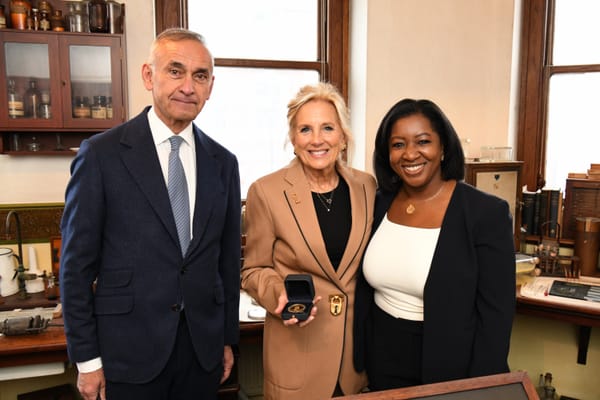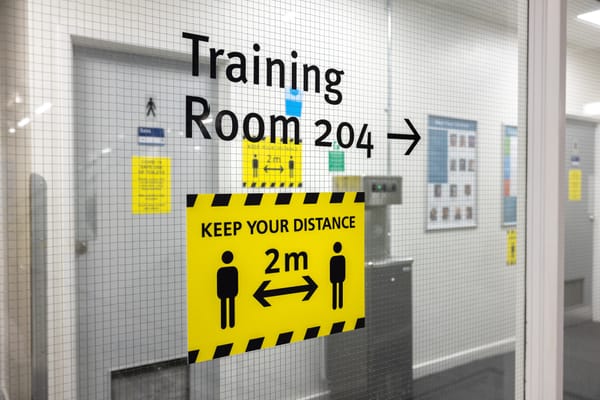World AIDS Day
On the 1st December world AIDS day took place, to support people living with HIV, raise support for the fight against HIV, and remember those dead from AIDS-related illnesses

It is estimated that over 100,000 people in the UK are living with HIV. An estimated 7,500 of those are undiagnosed. The life expectancy for people diagnosed early (15-59) is the same as the general population. However nearly half of HIV diagnoses are late.
HIV is transmitted through particular body fluids. This includes blood, semen, vaginal and rectal secretions, and breast milk. The greatest form of transmission of the virus is through unprotected sex with a transmission risk of 2-20%. But babies can contract HIV from the mother during pregnancy, childbirth and breastfeeding at a rate of 15-45%. Sharing of needles and needlestick injuries can transfer the virus as well as blood transfusions and organ transplants from infected donors.
Blood donations are tested rigorously for any blood-borne viruses in the UK. Despite this, men who have sex with men, sex workers and people who have group sex are not allowed to donate blood within 3 months of having sex. This policy does not take into account sexual behaviour, for example, condom use, PrEP/PEP use, monogamy or recent STI tests.
HIV damages immune cells making it difficult to fight infections. When a person with HIV has extensive damage to the immune system and acquires a life-threatening infection this is called AIDS.
HIV and Imperial
Earlier this year the second patient in the world to achieve HIV remission was at Hammersmith Hospital. After developing Hodgkin’s Lymphoma this patient underwent chemotherapy and stem cell therapy. Unfortunately, this type of treatment is too toxic for standard HIV therapy. However, this is very promising for developing treatments in the future. Dr Ian Gabriel said, “The treatment we used at Imperial was different than that of the ‘Berlin Patient’ since it used no radiotherapy and highlights that its effectiveness lies in preventing cells from being infected. This exemplifies the need to pursue and develop new strategies based on abolishing CCR5 expression.”
The Imperial College Trust has been heavily involved in HIV research and treatment from identifying the abnormalities in an HIV infected immune system to developing an HIV vaccine. The development of an HIV vaccine has been ongoing for over 30 years. At Hammersmith Hospital the most recent HIV vaccine trial, Ad4HIV, has shown some promising preliminary results. The results of this trial should be published early next year.
The Imperial College Trust has also led the way for progressive and inclusive STI testing with the introduction of specialist services for the trans community at 56 Dean Street. They are a trans-led team who offer medical, social and housing support.
What we did
We have given out over 300 red ribbons over the last week. We have raised £184.19 so far for Terrence Higgins Trust. We had a stall in Beit Quad on Wednesday 28th November giving out ribbons and information pamphlets about HIV and PrEP. The ICSM Welfare team organised a free and confidential STI testing event at the Reynolds that evening. It was so popular they’re considering another event soon in the future!
Important things to know about HIV
Several measures can reduce the risk of HIV transmission during sex. Type of sex has different levels of risk of contracting HIV from receptive anal sex being the highest risk to receptive oral sex being the lowest risk. Factors that can increase the risk of transmission involve inflammation of mucosal membranes such as STIs and the presence of blood from menstruation or rough sex causing abrasion. Factors that decrease the risk of transmission include the use of PEP and PrEP, circumcision and lubrication.
What is PrEP?
PrEP stands for pre-exposure prophylaxis. Taking it regularly every day can prevent someone from getting HIV (in an HIV negative person). It is the first HIV prevention strategy that can be used by both men and women without depending on their partner. Taking PrEP every day has shown to reduce someone’s risk of contracting HIV by over 90%. There are also ongoing studies looking into the interactions between PrEP and hormones. At the moment it is unlikely that PrEP interacts with hormones. However, most studies into PrEP have investigated its effects in men who have sex with men and heterosexual couples. So there is a push for studies into the effectiveness of PrEP in the trans population and during pregnancy that will hopefully improve our insight. It is important to know that PrEP does not protect against other STIs so try to use other barrier methods if you want full protection.
What is PEP?
PEP stands for post-exposure prophylaxis. Similar to the morning after pill PEP can be taken within 72 hours after exposure to HIV to stop the infection. It’s meant to be used as a last line resort in case of an accident (eg condom breaking) rather than using it routinely after sex or after sharing needles. Once you start PEP you have to take it once or twice every day for 28 days. The sooner it is started and the closer you stick to the regimen the more effective it is at preventing HIV. You’re eligible for PEP if you might have been exposed to HIV during sex, have shared needles or have been sexually assaulted in the last 72 hours.
PEP can be prescribed to you at a sexual health clinic or in A&E. However, PrEP, in England, is a bit more difficult to attain. It is possible to buy PrEP online but it comes to between £17.50 to £80 per month. The other option is enrolling on the IMPACT Trial, which gives PrEP to the participants for free. It is only open to high-risk populations:
- Men who have sex with men or trans women, who have had sex without condoms in the last 3 months, and feel they’re likely to do so in the next 3 months
- HIV negative partner of an HIV positive person when the positive partner does not have an undetectable viral load, and it is likely they’ll have sex without condoms
- Other people who are clinically assessed to also be a high risk of HIV infection
Get tested!
Most importantly, make sure to get tested regularly! When should you get tested?
- Every 3-6 months if you’re having sex regularly
- Every time you have a new sexual partner
- If you notice any changes to your genitals eg itchiness, unusual discharge, skin changes, pain during sex/when peeing etc.
- If you have sex with someone with an STI
If you have symptoms make sure you visit your local sexual health clinic or your GP, but if you don’t you can order a home testing kit. Home testing kits are free to order in some postcodes. If your borough doesn’t fund home testing kits you can buy an HIV home testing kit for about £23 or a chlamydia and gonorrhoea screening for £26. You can order kits from SH:24 and Fettle, who work alongside the NHS.
How can I help?
- Become a volunteer at Terrence Higgins Trust
- https://www.tht.org.uk/take-action/volunteer
- Raise money for Terrence Higgins Trust: https://www.justgiving.com/fundraising/imperialworldaidsday








